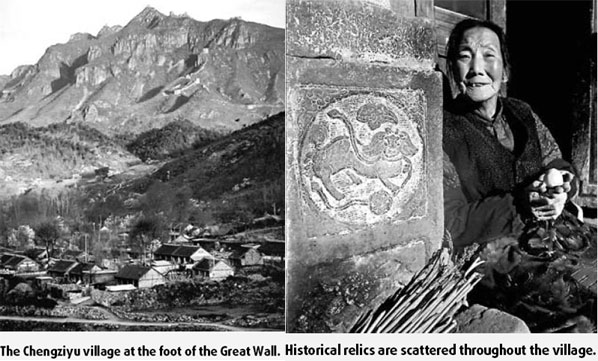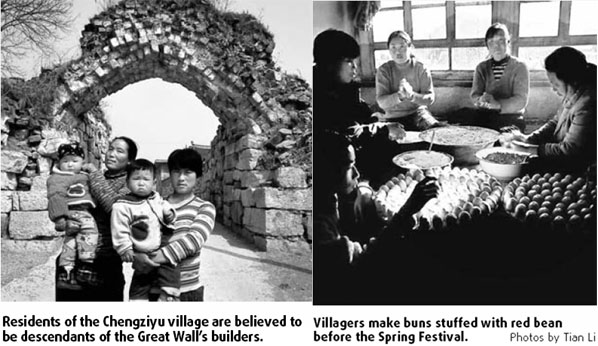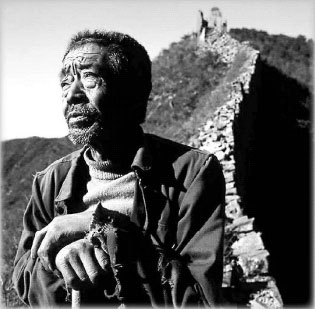Protecting the Wall's legacy
Over 400 years ago, thousands were drifted from the south to build a section of the Great Wall in the north, including today's Beijing, Tianjin and Hebei province. They then stayed to guard the Wall and their families moved to join them.
Now, their descendants are still living in the villages at the foot of the Wall. According to a research conducted by the culture bureau of Qinhuangdao, where the eastern end of the Great Wall is located, the Great Wall builders' descendants live in 158 villages along the 374km Ming Great Wall within the city.
However, most of the sections there had been damaged and left wild.
|
A farmer watching over his sheep at one section of the Great Wall. |
At the beginning of each spring, families in Chengziyu, one of such villages in Qinhuangdao of Hebei, walk to the gate towers along the Wall to offer sacrifices, such as fruits, white liquor and pig heads, to their ancestors. Lighting incense, they pray for protection and a good harvest.
Originally, some of these towers were assigned to, and named after, soldiers' families. For example, if the family's surname was Zhang, its assigned gate tower would be called Zhangjialou (jia means family and lou means tower).
Many of the daily items used by the soldiers can still be found. Before each Spring Festival, villagers make buns stuffed with red bean and freeze them outdoors. The food is steamed before each meal during the holidays. It has been said that the buns were the soldiers' main food throughout the whole winter.
Many old stories can be heard in the villages. There is a famous watchtower xifulou (xifu means wife) in Dongjiakou village. The name was given in recognition of Wang Xuela, of the Ming Dynasty (1368-1644), who asked to join the army after her husband, a guard of the tower, was killed in battle. Moved by her love for her husband, Commander Qi Jiguang let her guard the same tower.
In the villages, some people's lives were changed in order to protect the legacy of their ancestors. Zhang Heshan, in his 50s, is one of them.
The weather-beaten farmer has voluntarily devoted more than 30 years to protecting the Wall. Everyday he patrols the 15km section, picking up fallen bricks, helping protect old relics and promoting protection of the Wall among his fellow villagers.
"Now I have become an expert of the section I patrol," Zhang says.

He is part of a team of 60 volunteer farmers in Qinhuangdao who are responsible for protecting the Great Wall there.
Although many people in these villages view them as descendants of the builders of the Wall, their main concern is to improve their own lives.
Surrounded by hills, these villages are remote and underdeveloped. Many young people go out to make money as migrant workers. But some of them venture far, getting jobs rebuilding parts of the Wall near their hometown.
At the same time, some farmers have chosen to stay and open their doors to travelers who want to experience life in the countryside and have a close look at the wild Great Wall.

(China Daily 04/16/2008 page20)















